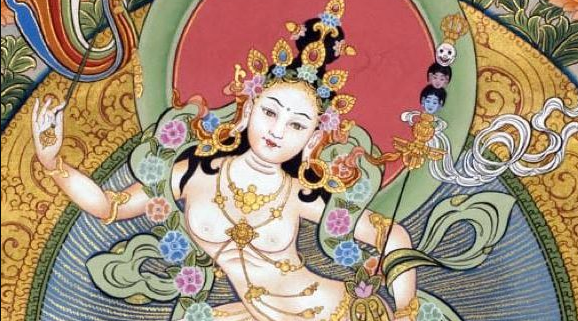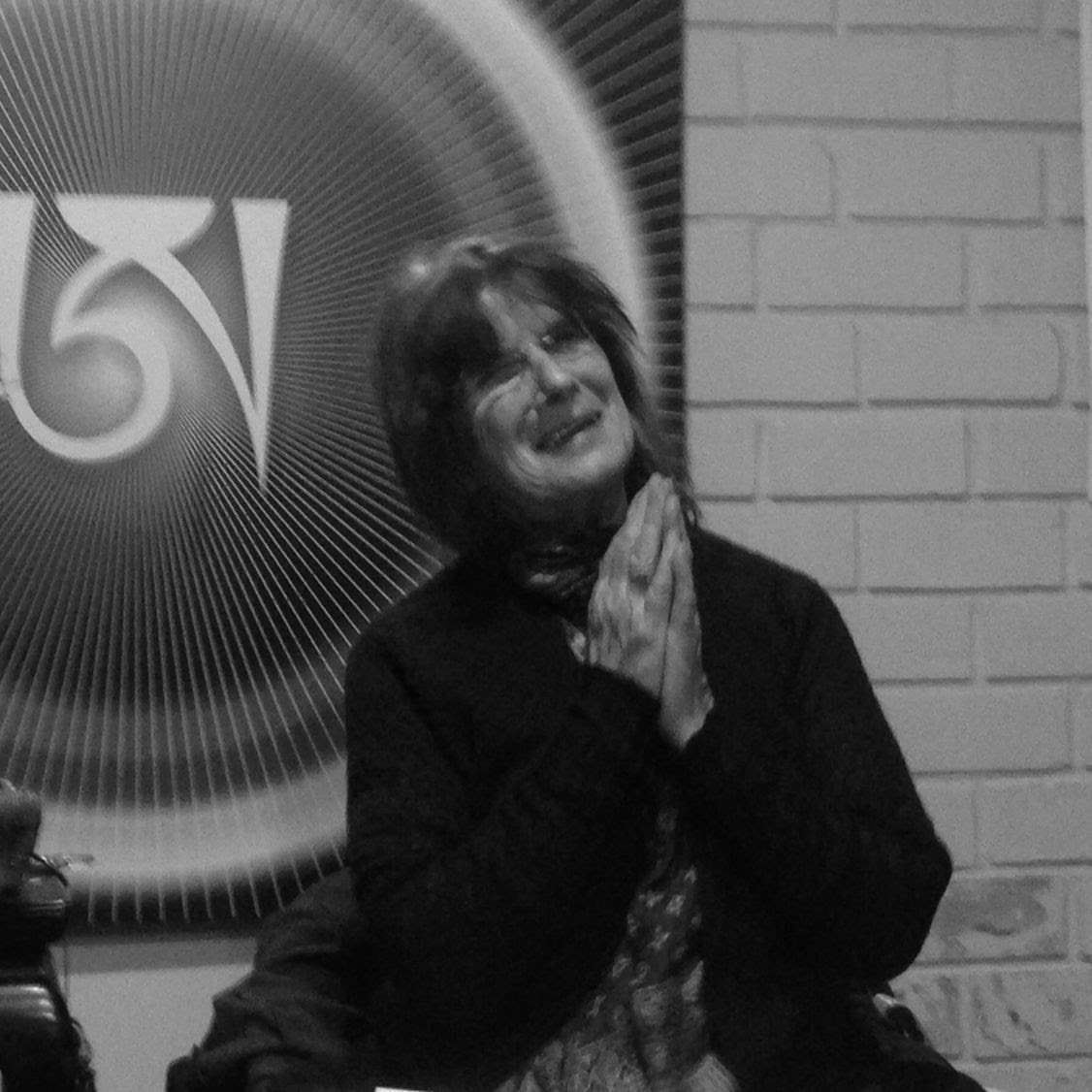 We are happy to invite you to the retreat Mandarava Long-life Practice, Chüdlen and Tsalungs in 23rd – 27th October 2019 with Nina Robinson at Rangdrolling, Amsterdam.
We are happy to invite you to the retreat Mandarava Long-life Practice, Chüdlen and Tsalungs in 23rd – 27th October 2019 with Nina Robinson at Rangdrolling, Amsterdam.
During the retreat we’ll try to learn something about all the different aspects of this practice: its meaning and benefits, the symbolism of the mandala, the melodies, mudras and use of ritual instruments.
We’ll also practice the Sogtig breathing for the Chudlen practice and, if time, some Tsalungs as taught by Rinpoche in the 2018 Mandarava Drubchen retreat in Dzamling Gar, Tenerife.
*****
We’ll start the retreat at 6.30 in the evening of 23rd October 2019 with a Ganapuja of Mandarava.
On the following days there will be explanations and practice 10 – 12 am and 3.30 – 5.15 pm, leaving space in the evening for Yantra Yoga and/or Dance of Vajra, or Khaita. Sessions will be more or less 2 hours
**********
The Mandarava Long-life, chüdlen and tsalung practices come from the Longsal Teachings of Chogyal Namkhai Norbu.
They belong to the Upadesha series of Dzogchen.
The following are words of Rinpoche extracted from various teachings.
“The Tibetan word for Upadesha is Men-ngag. Ngag means voice; men is the negative. That means these teachings should be kept secret; when practitioners receive these teachings they shouldn’t talk about them everywhere and use them everywhere; they should keep them secret.”
“The practice of Mandarava is a path for having total realization and also, relatively, for having a longer life and prosperity. But the main point is to attain realization of the state of Mandarava.
“Another characteristic of Men-ngag methods is that they are more effective and lead to quicker realization. Of course you need a concrete base for that. If you have that base, when you receive the teaching and do the practice in the correct way you can have quicker realization.”
“The Tsalungs are specific methods ….. for applying how to integrate into a state of contemplation through channels and chakras.”
“In the Dzogchen teachings it is considered important to at least do the most simple form of Chüdlen because it is a great help in the development of clarity.”

NINA ROBINSON’s BIO:
Nina Robinson was born in England in February 1937. She has done many different kinds of work, including raising a family, making ceramics and teaching it. After briefly following various Buddhist teachers she met Chögyal Namkhai Norbu and attended the teachings he gave in June 1980 in a camping retreat he gave in northern Italy. She was very fortunately able to follow many of his teaching and practice retreats from that time until the present day. She moved to Italy in 1986 and has lived near Merigar since then. She was secretary of Merigar for 7 years. She has also helped in transcribing, translating and editing many books of Shang Shung Editions.
Since 2002 she has been invited to lead retreats in many parts of the world.
Diet Advice just in case you want it
The diet Rinpoche recommended for those wishing to do strict Chudlen practice:
well-cooked grains such as wholegrain rice, barley, oats (no wheat); raw butter; honey; a little ripe fruit and cooked vegetables – all in small quantities and nothing after 6 o’clock in the evening.
Second level: those who need it can also eat some beans; fish; yogurt (only in the first half of the day) and cornflakes and milk in the evening.
Third level can add some cheese, fish and chicken etc.
People who have a lung imbalance will need more substantial food.
Drinks: good boiled water, some fruit juice, roasted barley drink, some herbal teas. Those who cannot give up tea and coffee should drink it very weak and not often.
Rinpoche said you should not smoke anything while you are doing Chüdlen. He says that if you normally smoke you should stop for the whole time you are doing Chüdlen retreat.
Of course you shouldn’t use any kinds of heavy drugs or alcohol.
Location: Rangdrolling (Overbrakerpad 2, 1014 AZ Amsterdam)
Registration via email: info@rangdrolling.nl
IBAN: NL72INGB0006065880 with mention Mandarava retreat
Price: Sustaining € 95 -; Ordinary € 130 – ; Non-Members € 145 –
Early Bird Price: Sustaining € 80 -; Ordinary € 110 – (before October, 1)
*in case of financial troubles please contact info@rangdrolling.nl


